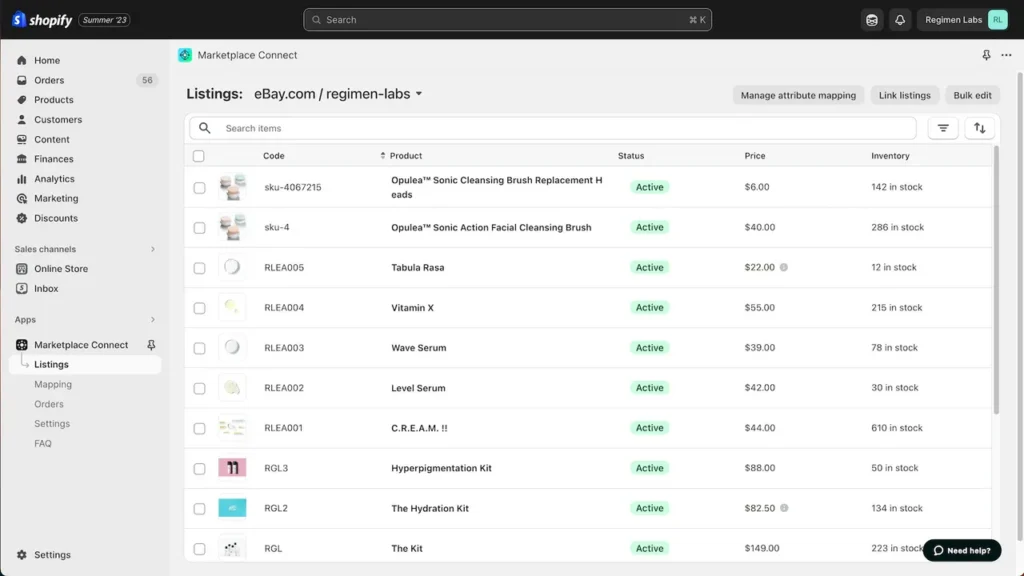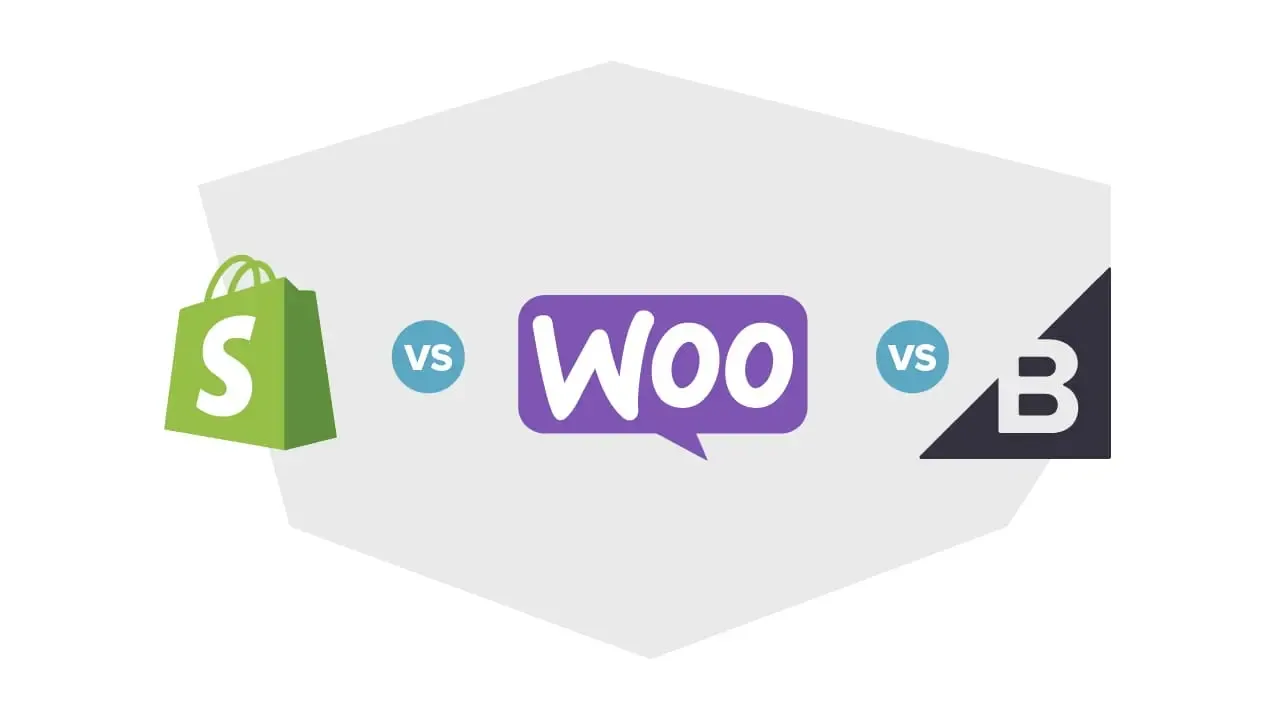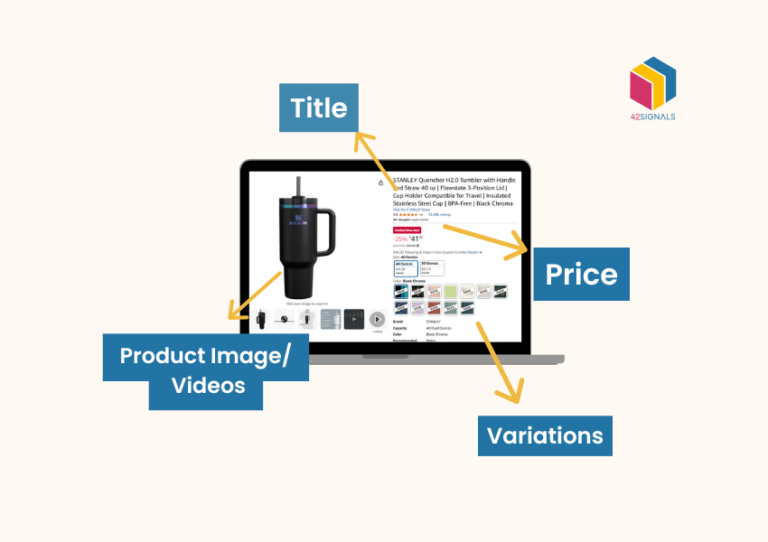Ecommerce is booming! Global sales reached a whopping $4.9 trillion in 2021 and are expected to keep growing, hitting a massive $6.4 trillion by the end of 2024. Getting started may seem daunting with the options available to find the best eCommerce platform but we are here to help.
The key to success? A reliable ecommerce platform with cutting-edge features and a user-friendly design. Let’s dive into three of the top contenders: Shopify, WooCommerce, and BigCommerce. We’ll explore their strengths and weaknesses to help you choose the best one for your business.
Introduction to the Best Ecommerce Platforms
Employing the best ecommerce platform allows enterprises to peddle goods via websites or web apps efficiently. Such platforms streamline product listing, administration, advertisement, and checkout procedures integral to operating a thriving digital storefront—selecting the optimal platform among countless alternatives proves pivotal in aligning it precisely with your business objectives.
Key Factors to Consider When Choosing the Best Ecommerce Platform
1. Budget
Understand what you’re willing to spend on your ecommerce platform. While both Shopify and BigCommerce offer tiered pricing plans based on features and capabilities, WooCommerce is technically free but requires hosting costs. Additional expenses like plugins, themes, and support might increase overall costs for all three platforms.
2. Tech Proficiency
Evaluate your team’s technical aptitude before deciding on an ecommerce platform. Selecting a completely managed solution like Shopify or BigCommerce minimizes efforts spent on managing servers and updating software, thus streamlining operational efficiency.
3. Design & Customizability
Evaluate each platform’s template selection and capability to modify the layout, colors, fonts, etc., according to your brand preferences. Although all three provide abundant customization options, heavy tailoring leans toward WooCommerce due to its extensive library of third-party plugins.
4. Scalability
Anticipate the future growth potential of your business and guarantee that your selected platform accommodates increasing traffic and order volume. Both Shopify and BigCommerce excel at scaling, providing enterprise-level solutions for larger companies, whereas WooCommerce users must diligently monitor their servers during peak demands.
5. Payment Processing
Compare each platform’s compatibility with favored payment methods and related fees. Only Shopify imposes transaction fees when utilizing external processors; nevertheless, BigCommerce eliminates them altogether.
6. Integration Capabilities
Recognize essential applications and services needed for smooth operations, such as inventory management systems, CRM tools, or shipping providers. Make sure the chosen platform facilitates seamless integration with these components.
7. Customer Support
Prioritize reliable assistance from the platform provider rather than depending solely on community forums or independent developers. All three competitors offer diverse levels of dedicated support, with better service granted to higher tiers.
Comparison Of The Best Ecommerce Platforms

- Shopify
- User-friendly interface
- Robust marketing tools
- Seamless integration with multiple payment gateways
- Charges transaction fees unless using their proprietary processor
- WooCommerce
- Open-source plugin for WordPress sites
- Extensive collection of extensions and integrations
- No initial fee but requires separate hosting costs
- Self-managed updates, backups, and security measures
- BigCommerce
- Impressive scalability and flexibility
- Advanced built-in features like abandoned cart recovery and multichannel selling
- Waived transaction fees regardless of payment gateway choice
- Certain plans include monthly sales limits accompanied by extra fees
Ease of Use: Selecting the Most Accessible Option for Non-Experts

Image Source: Shopify App Store
Regarding user-friendliness, Shopify takes the lead with its simple interface and effortless setup process, appealing especially to individuals lacking technical expertise. Key highlights include:
• Shopify: Boasting a beginner-friendly drag-and-drop store builder, convenient dashboard navigation, and prompt customer support—an excellent choice for non-technically inclined users.
• WooCommerce: Despite being highly adaptable via plugins and themes, it operates within the WordPress ecosystem, demanding greater involvement in managing hosting, plugins, and themes, possibly intimidating newcomers.
• BigCommerce: Parallel to Shopify regarding usability yet carries a slightly steeper learning curve owing to intricate features and jargon that might challenge first-time users.
For non-tech-savvy entrepreneurs, Shopify emerges as the superior alternative for establishing and maintaining their e-commerce business effortlessly.
Scalability: Enabling Future Prosperity
Evaluating each platform’s approach to growth capacity is imperative:
• Shopify: Provides flexible plans ranging from entry to expert level, adapting smoothly to expanding enterprises. Effortless transitions enable enhanced sales volumes and sophisticated features as needed.
• WooCommerce: Delivers a customizable, self-hosted experience contingent on solid hosting infrastructure and tech know-how for successful scalability.
• BigCommerce: Emphasizes scalability, featuring plans suited for evolving business phases along with high-performance capabilities compatible with growing sales volumes.
Security: Safeguarding Client Information
The following security summaries showcase each platform’s commitment to preserving e-commerce safety:
• Shopify: Secure shopping carts employing 256-bit SSL certificates and compliance with industry standards reinforce client confidence.
• WooCommerce: Security depends on host reliability, supplemented by recommended plugins and SSL certificate installation.
• BigCommerce: Comprehensive security protocols encompass safe checkouts and data defence, meeting rigorous industry requirements.
Ultimately, vigilance remains paramount for all parties involved in protecting sensitive information and sustaining consumer loyalty.
Cost Comparison: Discerning Value Across Platforms

Image Source: Makingthatwebsite
Understanding each platform’s pricing structure helps identify financial advantages:
• Shopify: Monthly subscription plans inclusive of hosting and SSL certificates accompany transactional fees and possible app surcharges.
• WooCommerce: Being open-source, zero direct costs arise; nonetheless, hosting, themes, and paid extension fees accrue gradually.
• BigCommerce: A defined tier progression incorporates rising features alongside predictably incrementing expenditure comparable to Shopify, plus optional enhancements.
Total cost evaluation entails assessing scalability, transactional fees, add-ons, and external integrations to ascertain the financially soundest investment.
Assistance & Learning Opportunities: Overcoming Barriers Together
Examining the quality and availability of support offered by each platform ensures informed decision-making:
• Shopify: Accessible 24/7 support, rich educational content comprising written articles, videos, and active forums facilitate problem resolution and continuous development.
• WooCommerce: Thorough documentation, responsive ticket submission, and engaging communities strengthen collective wisdom sharing amongst members.
• BigCommerce: Around-the-clock live support agents, exhaustive resource hubs, and interactive discussions nurture resilient environments conducive to thriving e-commerce journeys.
Placing value on attainable guidance promotes empowerment in navigating the challenges presented by digital entrepreneurship effectively.
Conclusion
When choosing among Shopify, WooCommerce, and BigCommerce, the final verdict should align with specific business needs:
- Shopify shines for those seeking an all-in-one solution with robust support and user-friendly design tools.
- WooCommerce is ideal for existing WordPress users who require flexibility and customization capabilities.
- BigCommerce caters well to businesses aiming for growth with built-in features and scalability without the need for plugins.
Each platform offers unique benefits. Consequently, the best ecommerce platform would be the one that matches your company’s operational approach, technical know-how, and expansion objectives.
Now that you are ready to set up your ecommerce store on one of these best eCommerce platforms, check out how 42Signals can help you with Ecommerce Analytics for your store.
Want to know more about our software? Sign up for a free trial today.
FAQs
Which e-commerce platform is best?
While there is no single “best” platform for everyone, considering aspects like ease of use, scalability, versatility, and richness of features, three notable platforms rise above others: Shopify, WooCommerce, and BigCommerce. Assessing your unique priorities and limitations will aid in determining the most fitting ecommerce platform for your venture.
What is the best ecommerce for beginners?
If you’re new to ecommerce, simple operation and cost-effectiveness tend to be vital factors. One outstanding choice for beginners is Shopify, thanks to its intuitive layout, quick installation, and round-the-clock customer service. Its reasonably priced subscription tiers and wide range of templates also appeal to newcomers entering the ecommerce space.
What is the best website builder for ecommerce?
Selecting the premier website builder for ecommerce significantly depends on the sophistication required for functionality, visual taste, and monetary concerns. Some widely admired builders comprise Shopify, Wix, and Squarespace. Thoroughly analyze their offerings and juxtapose them against your specific checklist to discover the utmost compatible tool for crafting your online store.
Which type of website is best for ecommerce?
Identifying the appropriate sort of site for ecommerce generally turns on the extent of inventory control necessities, promotional desires, and fiscal allocations. Small-scale companies usually find value in hosted solutions like Shopify and BigCommerce, attributable to their manageable oversight procedures, incorporated hosting facilities, and safety protocols.
Meanwhile, bigger organizations might lean towards self-hosted systems powered by applications like Magento or WooCommerce, deployed on personally administered servers. Evaluate your company’s dimensions, assets, and intentions to settle on the opportune categorization for your ecommerce mission.







